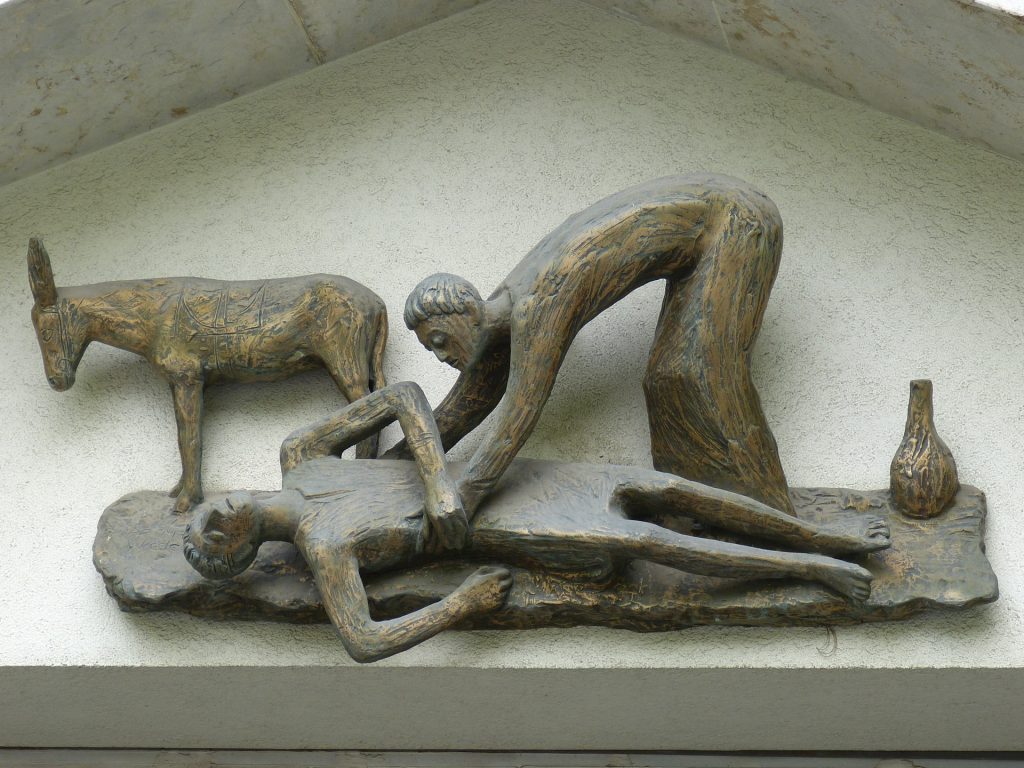The Nous, a UK non-profit organisation, will be hosting a programme on the Role of Faith/Religion and mental health this weekend. As I sit staring into the dark, I cannot help but consider how my attitude towards Christians changed since I was diagnosed with depression and fibromyalgia. The story of the Good Samaritan pops in my head.
I cannot speak for other faiths or religions, I am Christian. I have observed the failure by the church in supporting people who live with mental health illnesses. There is a level of ignorance in what mental illness is and clearly a lack of understanding that depression is not the only illness people live with. Church leaders are not trained to handle mental illnesses although many have counselling support services within the church. Stigma and discrimination have congregants sitting in pews suffering alone.
On the other side of the coin is the deliverance ministries. I have nothing against the ministries, what do I know I was raised and Anglican and joined a Pentecostal church in England. My personal experiences of a pastor yelling in my face that I had some spirt and observing pastors yelling at demons to come out of people, has left a very sour taste in my mouth. I cannot in honesty say that there is no merit for this intervention, but the humiliation is unacceptable and causes people anxiety and they isolate. I am grateful that my foundation had not been tainted by what I deem as strange practices.
There is need for a better training for mental health professionals on different cultural aspects including language of people of Black, Asian and ethnic minorities. My therapist used to say “meditate” I said “I pray”. It is to next to impossible to leave God, the pastor and the church community out in the conversation. Other faiths would most likely agree with getting involved in understanding their tenets and attitudes towards mental health.
The Good Samaritan was an outcast within the Jewish community. They were seen to be less than the Jews yet, when a man fell on the roadside it was not the Priest, the Levite who helped it was an outsider. Such was my story. It was the atheist, non-Christian white British, and Nigerian friends, who stepped in to support a young woman, whose life was in the black whole of depression.
As austerity cuts bite into the mental health services and more people are discharged into the community as part of the continued awareness agenda:
- The Church has to offer charity to their congregants. Is love not the greatest of the commandments? If a member disappears for 3-6 months. Would it not be prudent to try and make contact? Isolation is one of the contributors to suicide.
- Include the discussion on mental health in the agenda of the church.
- Create Champions and a support group within the church. Alcoholics Anonymous has been incorporated in some churches with great successes. The resource is in the pews.
- Engage with mental health professionals in order to come up with guidelines on how to support their congregants.
- Safeguarding policies are already part of the church manifesto why not include mental health training?
- Be open to have the conversation with other professionals, you each have some skill and knowledge the other needs.
Perhaps I am harsh in my views of the church. As one who constantly prays to God to help me live with fibromyalgia and chronic fatigue and depression; I acknowledge I do not know everything.
- The Good Samaritan interrupted his business to help the man who had been attacked by thieves.
- He took him on his donkey and put him up in an inn at his expense
- He bound his wounds and promised to return
- He returned
Those living with mental illness just want to know they are valued and can be contributing members of the society. They hope you will take the time to see them and offer practical support. Take a person out for coffee, offer to help them clean their house, is it that hard? They need you to bind their wounds by sitting next to them quietly in support and listening. Most importantly returning from time to time to check on them. Sometimes it is that simple.

